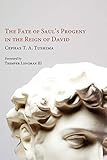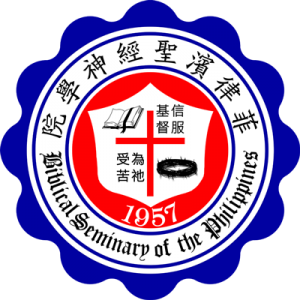The fate of Saul's progeny in the reign of David / Cephas T.A. Tushima.
Publication details: Eugene, Or. : Pickwick Publications, c2011.Description: xxiii, 347 p. ; 23 cmISBN:- 1608999947
- 9781608999941
| Item type | Current library | Shelving location | Call number | Status | Date due | Barcode | |
|---|---|---|---|---|---|---|---|
 Books
Books
|
BSOP Library | GC | BS1325.2 T87 2011 (Browse shelf(Opens below)) | Available | 00044100 |
Browsing BSOP Library shelves, Shelving location: GC Close shelf browser (Hides shelf browser)
| No cover image available |

|

|

|

|

|

|
||
| BS1325.2 C15 1975 The ark narrative, 1 Sam 4-6, 2 Sam 6 : | BS1325.2 C36 2016 1 Samuel as Christian scripture : a theological commentary / | BS1325.2 K13h 2022 Honor and shame in 1 Samuel 1-7 / | BS1325.2 T87 2011 The fate of Saul's progeny in the reign of David / | BS1325.3 C44 2013 1 and 2 Samuel / | BS1325.3 D29s IISam 2 Samuel : | BS1325.3 D29s ISam 1 Samuel : |
Revised version of the author's thesis (Ph.D.)--Westminster Theological Seminary, 2009.
Includes bibliographical references (p. 325-340) and index.
Foreword / Tremper Longman III -- Introduction -- A survey of the interpretive history of 1-2 Samuel -- Narrative criticism -- The contest for the succession to the throne of Saul (2 Samuel 2-4) -- David and Michal -- David and Mephibosheth -- An integrative reading of research findings -- Conclusion: Truth from David's dealings with the Saulides.
This book, as a comprehensive analysis of the fate of Saul's heirs, shows that David, like other ancient Near Eastern usurpers, perpetrated heinous injustices against the vanquished house of Saul. It evaluates the relationships between David and Saul's heirs, using the criterion of justice, which is a cardinal directive principle for living in YHWH's covenant community as is enunciated in the Deuteronomic Code. Tushima focuses on the story of David and its interconnections with the fate of the Saulides to determine the factors that lay behind the latter's tragedies, inquiring into whether these tragedies were due to continuing divine retribution, pure happenstance, or Davidic orchestration. In his close reading of these texts, Tushima argues that David was, for the most part, unjust and calculating in his dealings with the Saulides. Thematic and motific threads arising from this narrative critical study (such as the impact of human conduct on the environment, the tension between election and the character of God's servants, the dynamics of sacred space and sacred typonyms, the Judahite [Davidic] kingship, the monarchy, marriage, and Zion theology) are considered within their contexts in Israel's traditions for their biblical-theological and redemptive-historical import.


